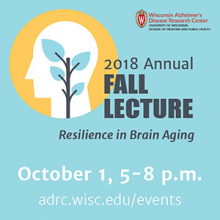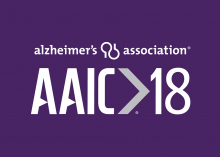
The National Institutes of Health awarded a 5-year, $19 million renewal grant to the Wisconsin Registry for Alzheimer’s Prevention (WRAP), the largest family history study of Alzheimer’s disease in the world. The funding will allow researchers to better detect brain changes that occur in the earliest stages of Alzheimer’s disease through expanded collection of spinal fluid and brain imaging.
“Alzheimer’s Disease may begin decades before its symptoms are evident. We still don’t know why...










